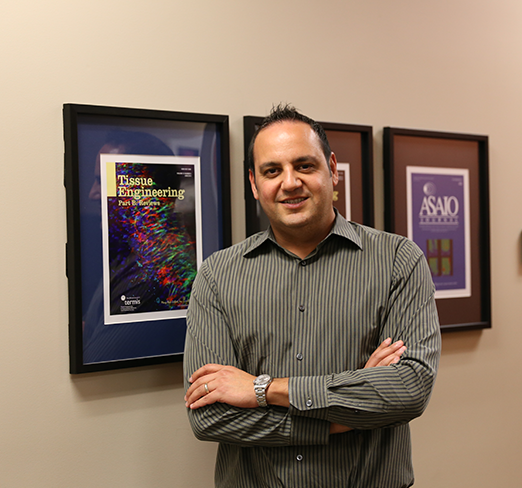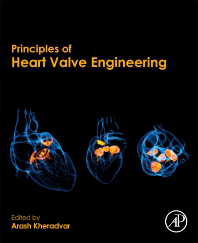Kheradvar Compiles Comprehensive Textbook on Heart Valve Engineering

Sept. 4, 2019 - Samueli School biomedical engineering professor Arash Kheradvar has published a new book, Principles of Heart Valve Engineering, available through Academic Press, a division of global publisher Elsevier.
Directed at biomedical engineers, cardiologists, cardiothoracic surgeons, academics and other scientists and engineers, the book focuses on the current state of the art in heart valve science and engineering, therapies, and pathways to developing safer and more durable heart valve devices in the future. It is an interdisciplinary, comprehensive resource for heart valve engineering.
According to Kheradvar, since the inception of heart valve engineering in 1960s, the field lacked an all-inclusive resource of up-to-date heart valve research and development efforts. “Inspired by that revelation,” he says, “and with the intention of disseminating the science and knowledge of heart valve engineering,” he compiled a group of internationally known researchers in the field from more than 15 institutions, including bioengineers and cardiologists, to contribute. The result is a comprehensive textbook covering a wide range of topics, including heart valve anatomy, embryology, mechanobiology, epidemiology, surgery, tissue engineering, computer modeling and more.

Kheradvar joined UC Irvine in 2010. He has both a medical degree from Tehran University of Medical Sciences and a doctorate in bioengineering from Caltech. The inventor of three unique heart valve technologies, Kheradvar is the lead inventor on 24 issued U.S. patents and five international patents, with more pending, mainly in the areas of heart valve technologies and cardiac imaging modalities. He is a fellow of the American Heart Association and has published more than 50 peer-reviewed journal articles. Recently, he has been developing a minimally invasive heart-assist device called Helix Cardia, aimed at helping a large group of patients who are experiencing heart failure but are not eligible for either heart transplant surgery or current ventricular assist devices.
“I always wanted to contribute to patients’ health on a global scale,” explains Kheradvar about his desire to perform fundamental research and develop medical device technologies rather than practicing medicine. He published another book, Vortex Formation in Cardiovascular System, in 2012.
- Anna Lynn Spitzer
